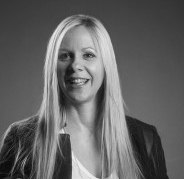
With all the masses of data available to all of us from customer feedback, benchmarking, research, analytics, etc., etc., it’s not hard to see why so many of us end up chasing the same ideals and best practice.
Add to that the risk-averse nature of business and the requirement for quick results and you have a recipe for uniform mediocrity. That’s not to say that you can’t learn from observing the mistakes and shortcomings of competitive brands and use that knowledge to improve your own offering but, in my view, more often than not, it’s a whole raft of lookalikes trying to cash in on the latest craze, whatever it may be.
It’s only natural for us to do what we can see works. We’re all under pressure to produce fast results which tends to make us risk-averse and choose the path that has led others to success. A successful product or service gives birth to dozens of copies, each one diminishing the chance that the success will be repeated. Instead, we should be determining how to make our products and services more meaningful to consumers by identifying the differences that make them important to consumers and which affect their buying decisions.
Successful marketing depends on identifying a customer’s needs or wants and then delivering a solution, product or service that satisfies these. However, in a world where we all have access to so much information, standing out in an endlessly crowded market is becoming harder and harder.
What differentiates you is not just your brand image, website or strapline. It is what you offer or do that sets you apart from your competitors and how this is communicated through your brand strategy. Successful brand differentiation means positioning your brand in a way that is meaningful to customers.
And don’t forget that each customer may value different aspects of your brand. This makes successful brand differentiation which engenders brand loyalty a complex process requiring a great deal of market research and analysis and a deep understanding of your potential customer base.
Your brand differentiator should be meaningful, important and influential to your customers whilst reflecting your brand’s personality, values and key characteristics. Building a strong brand is key to the success of your business and differentiation is the means by which your brand is set apart from the competition.
There are many ways to differentiate your brand, here are just a few examples:
Price
The price of your products or services can be an effective point of difference. You can go the low price ‘no frills’ route or be a high priced premium brand. Luxury brands can command higher pricing through an emphasis on quality – either actual or perceived. It is risky letting your brand rely on a low price as anyone can undercut your prices at any time and you can end up in a race to the bottom where nobody wins.
Customer Service
Exceeding customer expectations and consistently delivering excellent service can be effective in a market where there is little difference between brands. The main drawback here is that everyone claims to offer incredible service levels but few deliver; customers are aware of this so may not believe you.
Expertise
By offering your industry expertise to customers, you can provide a valuable brand difference. If you become the ‘go to’ company for information about your sector, customers will find it harder to buy elsewhere when they come to placing an order.
Innovation
Innovation is an excellent way of differentiating your brand. Good examples include Apple, Microsoft, TetraPak and, of course, sliced bread.
Challenge the ‘Big Boys’
It’s often good to be a small player in markets dominated by national and multi-national organisations. Large organisations are often dogged by layers of management which can make decision making seem like turning round an oil tanker whereas smaller concerns can be fast moving and far more flexible. Richard Branson’s Virgin brand has successfully taken on the big players in multiple sectors and Ryanair has grown to be one of the world’s biggest airlines from its beginnings as a challenger to the duopoly on London-Ireland flights held by British Airways and Aer Lingus.
Make it Convenient
Convenience can be a big brand differentiator. Make life easier for your customers and they will repay you with sales. Amazon is probably the best example but there are lots of brands that have found success simply by making it easy for their customers to buy.
Tell Your Brand Story
Every brand has a story and this can form part of the personality and values of the brand and help to differentiate it from the competition. Country or area of manufacture can also say a lot about your brand – ‘Made in Germany’ suggests reliable and well-engineered; ‘Made in Switzerland’ says craftsmanship and precision; and ‘Made in England’ is often associated with timeless, classic appeal.
Personalisation
Personalising your brand through interactive buying experiences, higher levels of customer service and digital marketing strategies that offer the right products to the right people at the right time can be extremely effective.
Go Green
We all know how important it is to care for our environment so enhance your brand’s green credentials by using sustainable, recyclable packaging and minimising your carbon footprint through purchasing, manufacturing and operations – you could also support an environmental charity. Demonstrate how you are delivering economic, social and environmental benefits for all stakeholders through your commitment to corporate social responsibility (CSR) and how your brand fits in with this strategy.
Limit Availability
We all want to sell more and more but limiting your brand’s availability can be a means of creating demand and achieving a higher price for your product or service and, ultimately improving your bottom line.

